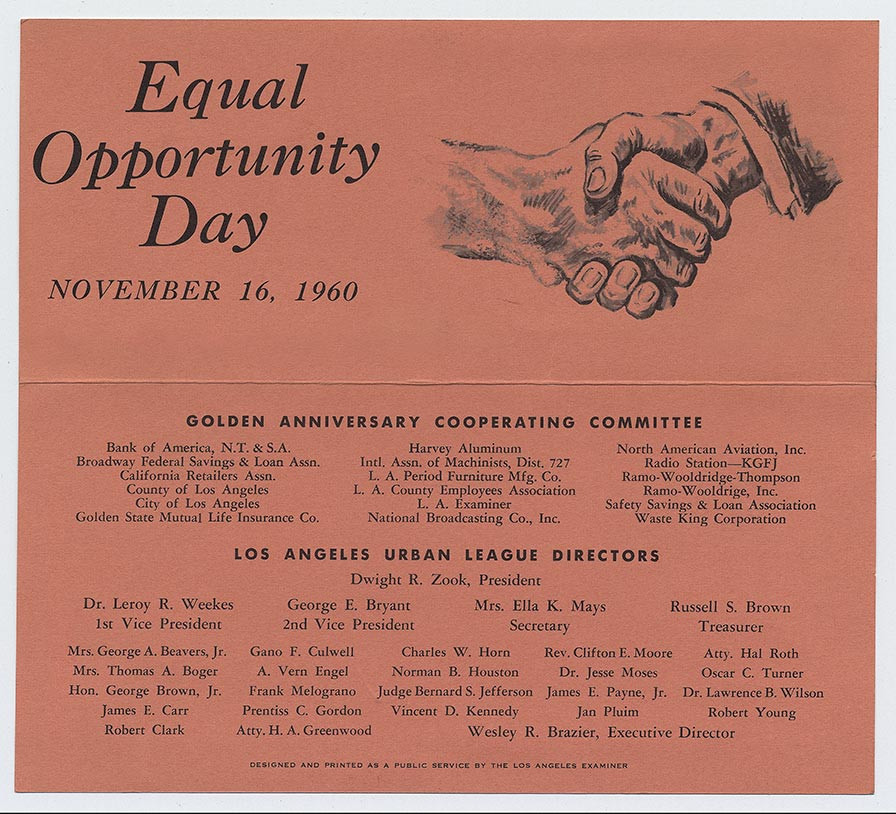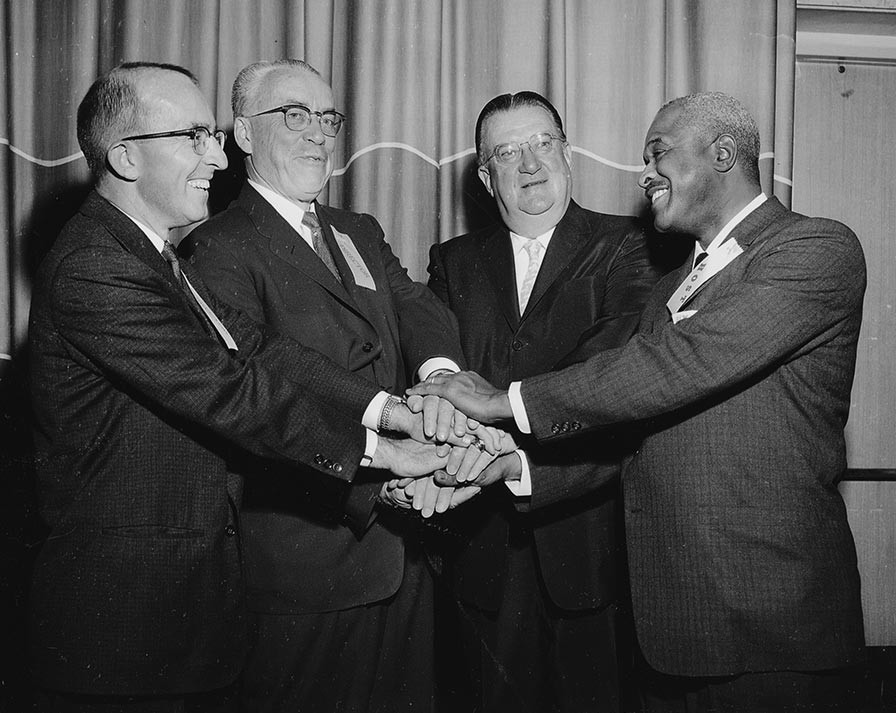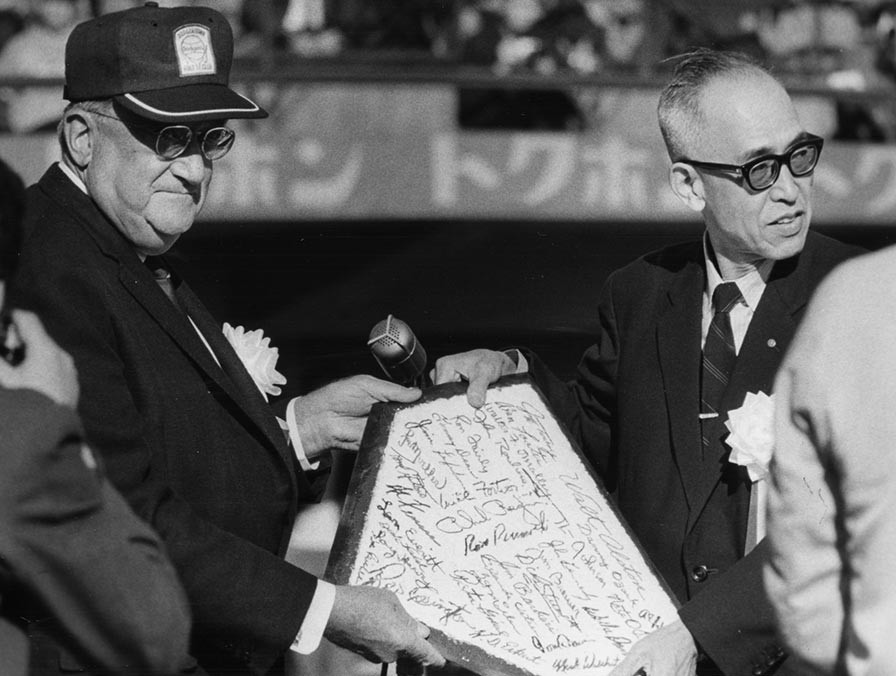This Day in Walter O’Malley History:
-
The Brooklyn Junior Chamber of Commerce announces a “Keep the Dodgers in Brooklyn” campaign. Walter Oberstebrink, president of the organization comprised of young business leaders, stated, “We are not going to let what happened to the Athletics (who moved to Kansas City), the Boston Braves (who moved to Milwaukee) and the St. Louis Browns (who moved to Baltimore) hit the Dodgers.” The New York Times, November 17, 1954 According to the report in The New York Times, “Oddly, the junior chamber’s drive was launched prior to yesterday’s report from Los Angeles that the Dodgers and the Cincinnati Redlegs were about to be shifted to Los Angeles and San Francisco, respectively. The story said there were ‘tentative’ plans to make such moves and added they were to be discussed at a special National League meeting in New York next Monday called by the league president, Warren C. Giles. Giles promptly discounted the report from his Cincinnati office, according to The Associated Press.” The story continues, “Walter O’Malley, president and part-owner of the Dodgers, is in Puerto Rico, but Fresco Thompson, vice president, said, ‘we know nothing about it.’”
-
Speaking to 1,000 guests attending the Los Angeles Urban League banquet at the Statler Hilton, Walter O’Malley helps to celebrate Equal Opportunity Day by extolling the virtues of former Dodger catcher Roy Campanella. O’Malley said, “Roy would probably have been the first of his race to become a major league coach or manager, except for the injury that ended his career.” Los Angeles Times, November 17, 1960 Regarding the May 7, 1959 tribute exhibition game for Campanella, as the Dodgers played the New York Yankees at the Los Angeles Memorial Coliseum arranged by O’Malley, he said, “Nearly 100,000 people (major league record of 93,103) came to the game not to see a Negro ball player but a great American athlete.” Los Angeles Times, November 17, 1960 O’Malley also noted that President Abraham Lincoln in his first address to Congress “had expressed the hope and concern that all citizens be afforded ‘an unfettered start and fair chance in the race of life.’” Los Angeles Times, November 17, 1960
-
Walter O’Malley discusses the rise of the Japanese talent level during the 1966 Dodgers Goodwill Tour. “The fact that the Japanese teams have won more games (against a visiting U.S. team) than ever before is of great satisfaction to us and a great reward for those of us who hoped Japanese baseball would reach the level of the U.S. major leagues,” O’Malley said, after the Dodgers compiled a 9-8-1 final tour record against their hosts. “We have about reached a plateau where there’s little or nothing more we can show the Japanese in addition to what they’ve already learned.” He said he would like to see “two or four or six recognized Japanese stars play for one or two years in the United States to convince the Japanese that they truly have major league caliber players.” O’Malley thought that a selection of top players from Japan “would make a very respectable showing” against U.S. major league teams. In comparing the differences from the 1956 Dodgers Goodwill Tour to Japan to this one 10 years later, O’Malley stated, “The Japanese are not making the mistakes they used to. They are better coached and better managed. And Japanese players today are improved physically and this has resulted in more players who can hit home runs.” The Yomiuri, November 17, 1966 The Dodgers played minus the services of pitchers Sandy Koufax, Don Drysdale and Don Sutton, first baseman Wes Parker and banged up infielder Maury Wills, who left the tour without club consent, setting into motion a series of apologies from O’Malley to government and baseball officials in Japan.




